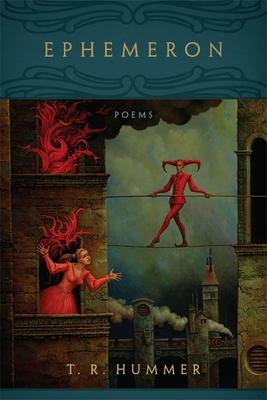T. R. Hummer's new and characteristically pyrotechnic collection takes its title from the rare (in English) singular form of the common word "ephemera." In a work of startling originality, the poet presents a meditation on ephemerality from the point of view of the ephemeron itself as it passes, be it the individual, the atom, the particle.
Hummer's work is existential and atemporal. The scope of the poems gradually broadens from the opening section, also called "Ephemeron," through "Either/Or," which is a fulcrum, on to plural "Ephemera." The vision that emerges is haunting, evoking the aftermath of a physical, psychological, and spiritual apocalypse.
Relentless in its stalking of the boundary between being and nonbeing, Ephemeron becomes a tour-de-force that shines a spotlight into dark corners of Being, revealing yet more darkness.

T. R. Hummer's new and characteristically pyrotechnic collection takes its title from the rare (in English) singular form of the common word "ephemera." In a work of startling originality, the poet presents a meditation on ephemerality from the point of view of the ephemeron itself as it passes, be it the individual, the atom, the particle.
Hummer's work is existential and atemporal. The scope of the poems gradually broadens from the opening section, also called "Ephemeron," through "Either/Or," which is a fulcrum, on to plural "Ephemera." The vision that emerges is haunting, evoking the aftermath of a physical, psychological, and spiritual apocalypse.
Relentless in its stalking of the boundary between being and nonbeing, Ephemeron becomes a tour-de-force that shines a spotlight into dark corners of Being, revealing yet more darkness.